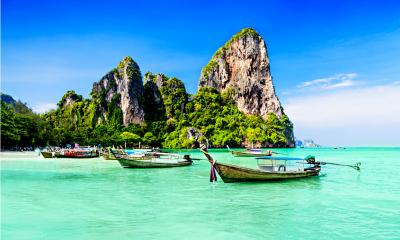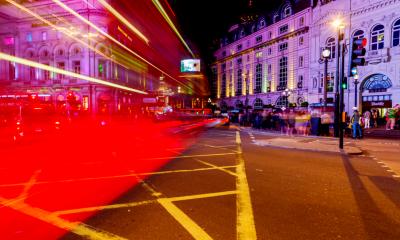
From natural disasters to shifting consumer trends, travel is a sector that's in a constant state of flux. Gavin Lapidus reveals what he's learned setting up and running independent luxury travel agency eShores
"I'd always wanted my own business, so it was really a case of just working out what that business would be. I had a passion for travel, so that was at the top of the list.
"I discussed my ideas with a friend who had worked in the travel industry for many years. With her industry expertise and my passion, we put a business plan together. From there, we discussed our plan with the bank and got funding in place. Then it was just a case of taking the plunge.
"We worked out of a back bedroom to start with, but after three months we needed to bring more staff on board. Our local council helped us with further funding and finding an office; that allowed us to take on our first employee - who's still with us today.
"Since these early days, eShores has moved offices three more times, and we now employ 15 staff from our base in Rochdale."
How the travel industry has changed
"A major industry shift that we've seen is an increase in people wanting to create their own trips - without the help of travel agents. Package deals are no longer in favour, with consumers looking for unique experiences that are personalised to their requirements.
"As our experience and knowledge has grown, we have found ourselves offering more bespoke holidays. Instead of offering off the-shelf-packages, we now design holidays to the exact needs of our clients.
"This reflects a wider change within the industry - standard packages are falling out of fashion, whereas individual adventures to obscure destinations are the way the luxury travel industry is heading."
The online experience
"Your website is how your customers will find you - it's what they will initially evaluate you on and what they will use to decide whether to contact you. So it's essential to get it right.
"It doesn't need to be expensive and complex, but you need to ensure it's professional, functional, and conveys the right brand message.
"Being mobile-friendly is very important too. The number of people using mobile devices to access the internet has overtaken traditional desktop users, and continues to rise. So having a responsive site that provides a good mobile user experience is paramount."
Dealing with adversity
"Since we started up we've faced many business challenges, with travel destinations suffering from conflict, natural disasters and political and economic instability.
"One of the biggest events for us was the collapse of XL Leisure Group, which went into administration in 2008. As they provided a huge number of our flights, we had to work around the clock to find replacement air travel for our customers.
"This also meant finding transport home for holiday-makers who were already away. Other airlines increased their prices to exploit the situation, and as we were covering the cost ourselves rather than charging the customer, it was an expensive period for us.
"Another massive event was the volcano in Iceland back in 2010 that grounded all flights to and from the UK. To cope with this unprecedented crisis, we paid for hotels for stranded clients and rearranged flights, hotels, and everything else for affected travellers.
"Without a loyal customer base, no brand can survive, so when something goes wrong, it's worth investing to put it right."
Gavin's three key lessons:
- "Agility is key. Small businesses must move quickly to remedy any issues that impact customers, even if they're out of your control."
- "When hiring, it's important to recognise and value interpersonal skills. Small businesses with small teams thrive on support and unity."
- "If you want to run your own business, you have an idea that you believe in and you are dedicated to seeing it through, then go for it. You will face challenges, but if you believe, you will make it succeed."



